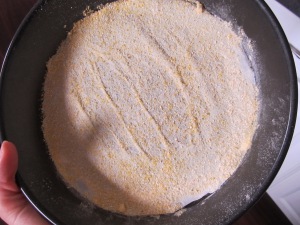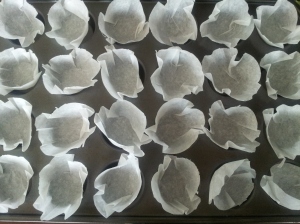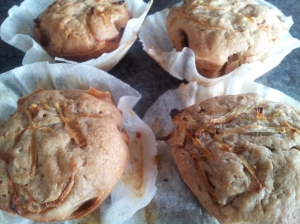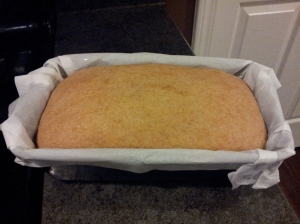
What is your hope riding on?
Today we are going to look at the (possible) fourth and sixth occurrences of the Hebrew word for hope MIQVEH–collection or gathering–in the Bible to learn more about where hope comes from, what it is, and what it ought to be based on.
Solomon’s horses were brought out of Egypt, and the king’s merchants received them in droves, each at a price.
Solomon’s horses were brought out of Egypt; the king’s merchants received them in droves, each drove at a price.
1 Kings 10:28; 2 Chronicles 1:16. Amplified Bible (AMP) Copyright © 1954, 1958, 1962, 1964, 1965, 1987 by The Lockman Foundation
I say “possible” because there is some discrepancy between Hebrew texts whether the word ought to be MIQVEH or QAVEH, the masculine noun form of QAVAH (the word for “wait” that we looked at in the Faith Friday’s | Bound in Hope post and will be discussing in more depth in the future). MIQVEH, QAVEH, and TIQVAH all come from the verb root QAVAH, to bind. They are all related through the main idea of bringing and combining something together. They are almost identical in spelling, also.
- MIQVEH: מקוה, HVQM;
- TIQVAH: תּקוה, HVQT;
- QAVAH/QAVEH: קוה, HVQ.
Same last letters reading right-to-left, different first letters (vowels are implied).
Some people will choose to look at such a minor discrepancy as evidence of the Bible’s fallibility; far from it, the insignificance of the difference confirms the Bible’s unprecedented accuracy despite the fact that translators have no access to the original documents, the only literary items considered infallible by adherents to Verbal Plenary Inspiration (generally, the idea that every word of the Bible is inspired by God).
All the Hebrew documents we have are in a whopping 85% agreement; hardly a case of “Chinese Whispers” after being preserved for approximately 2,500 to 3,500 years (Chinese whispers is typically 0% accurate after only a few iterations). Most translation errors come from minor copyist errors, like the one above, with a few caused by obscure words that are resolved by earlier texts as they are discovered.
If you’re still not sure about those minor discrepancies, stick to the 85% undisputed Hebrew words and keep an open heart to the 15% of disputed texts as translation issues are resolved (these disputes are often noted in the center columns or endnotes of various English translations; alternate translations, manuscript differences, and other difficulties are openly discussed so you can weigh them in context). The essential teachings of the Bible are not going to change; with 66 books in tow, including the New Testament, there are so many undisputed parts of the Bible that they more than adequately cover subjects from the minor passages that have translation nuances.
The Bible you hold in your hand (or scroll through online) is the most accurate historical book to date with no theological contradictions, all reputable texts being considered. It is more accurate than anything you will hear on the news or the TV; it is up to you to decide if those outlets are more dependable than the Bible.
Using human intellect to criticize the Bible is like trying to calibrate a laser with a yard-stick: we are far less accurate in our speech and ideology than the Bible. In science, one cannot accurately measure an object with a larger one (this is why atoms are often “viewed” with electrons instead of light). Since human beings are so poorly self-defined, we are not fit to measure the Bible (to scoff at its accuracy or perceived lack thereof); however, the Bible is more than adequate to measure us (in conduct and consistency since it remains essentially unchanged)!
The Bible has survived thousands of years of caustic contention as well as reasonable inquiry. It provides rigorous answers to inquisitive minds and silences the career skeptic. The contemporary Bible can hold its own, copyist errors and all! Imagine what voices of criticism would be forced into complete silence were the original documents found…
Therefore, I have no problem calling the Bible we have today the Word of God even if there are copyist errors or minor translation obscurities. Personally, I believe God thinks the Bible is accurate enough for us to pay attention to every single word. Jesus and the apostles quoted from the Septuagint, a Greek version of the Hebrew Scriptures that varied slightly in wording to make it more readily understood to Hellenized Jewry. Several of Jesus’ teachings and the apostles’ references come from or agree with the Talmud, which isn’t even in the “Canon of Scripture”. Jesus had no difficulty quoting or relying on the “modern” translations of His day.
Sometimes we invent arbitrary rules to disqualify God; nothing exists that could satisfy our unrealistic expectations of accuracy (least of all ourselves–there’s true hypocrisy!). Those self-sabotaging rules of accuracy are the byproduct of our modern, litigative thinking. (We have jumped out of the frying pan of the Pharisees into the fire of the Scribes!) The greatest Biblical accuracy is this: put its teachings into practice, by faith, and watch God transform and bless you as He promises!
Back to MIQVEH (thank you for patiently bearing with my discussion on Biblical accuracy). The MIQVEH/QAVAH debate is resolved by the simple fact that they both translate literally to similar words:
- MIQVEH translates as “yarn” (King James Version, which uses the ben Chayyim 1524/5 edition of Bomberg’s 1516/7 Rabbinic Bible); It means a collection and hope.
- QAVEH translates as “line” (not used literally in any version, but appears in Kittle’s 1912 Biblia Hebraica used by both the New King James Version and New American Standard Bible). It means a measuring cord used for binding.
Yarn and Line both speak of “roping off” or measuring “by the line”; the translation is made clear by the Amplified Bible (see verses above) which expounds original wording rather well within a word-for-word framework and that is why I am using it for this post! (If you see “from Keveh”, “from Kue”, “from Cilicia” in your favorite translation, know that the translators are trying to make sense of QAVEH in these obscure verses by suggesting it could be a place-name. I’m sticking with the AMP! –A.M.)
So what was being MIQVEH-ed (or QAVEH-ed)? What was being gathered together in hope in these nearly replicated verses in the books of the Kings and the Chronicles of Israel and Judah?
Horses!
(My husband likes to modify his autocross race-car to gather his “horses” together…that gives him lots of hope (!), but I’m not so sure that’s what Solomon was going for…)
Solomon was so wealthy that he didn’t purchase a horse the same way you and I would purchase a car. We would purchase with careful inspection, pitiful price bargaining, bank wheedling, begrudging document signing, and cautious driving.
Solomon, however, said, “I’ll take the entire lot!” He ordered his horses “by the line”, in droves as the AMP translates. I think we are hard-pressed to imagine how inordinately wealthy that is; buying things in bulk just to own them, not even having the opportunity to use them. Storing them from place to place and in the end, just reselling them to other people…for even more money!
Of course, horses were not really for transportation. They were for war. But here’s the thing: Solomon ruled at a time of great peace. In fact, that was what God promised him (through Solomon’s father, King David):
But you will have a son who will be a man of peace. I will give him peace with his enemies in all the surrounding lands. His name will be Solomon, and I will give peace and quiet to Israel during his reign.
1 Chronicles 22:9 New Living Translation (NLT) copyright© 1996, 2004, 2007 by Tyndale House Foundation.
Why did Solomon purchase so many horses? Because he could. His addiction to spending and trading was rivaled only by his addiction to women and accumulating money. Solomon had the cheat code to the single-player strategy game and he was racking up coins, horses, ladies, and treaties. Everything he needed for a high score, right? Wrong.
Four hundred and fifty years earlier, Moses had warned the Hebrew people against such a king:
“You are about to enter the land the Lord your God is giving you. When you take it over and settle there, you may think, ‘We should select a king to rule over us like the other nations around us.’ If this happens, be sure to select as king the man the Lord your God chooses. You must appoint a fellow Israelite; he may not be a foreigner. “The king must not build up a large stable of horses for himself or send his people to Egypt to buy horses, for the Lord has told you, ‘You must never return to Egypt.’ The king must not take many wives for himself, because they will turn his heart away from the Lord. And he must not accumulate large amounts of wealth in silver and gold for himself.
“When he sits on the throne as king, he must copy for himself this body of instruction on a scroll in the presence of the Levitical priests. He must always keep that copy with him and read it daily as long as he lives. That way he will learn to fear the Lord his God by obeying all the terms of these instructions and decrees. This regular reading will prevent him from becoming proud and acting as if he is above his fellow citizens. It will also prevent him from turning away from these commands in the smallest way. And it will ensure that he and his descendants will reign for many generations in Israel.
Deuteronomy 17:16-20, New Living Translation (NLT) copyright© 1996, 2004, 2007 by Tyndale House Foundation.
Solomon did more than buy horses from Egypt (the nation that oppressed the Hebrew people as I discussed in an earlier post, When Hope Turns to Blood); he made a treaty with Pharoah and married his daughter. The very nation that had oppressed them four centuries ago, from which God delivered Israel with signs and wonders and having removed them from Egypt, spent another forty years in the wilderness removing Egypt from them, was now being treated as Israel’s best friend because they were wealthy. This kind of Machiavellian expediency seems puzzling in a man who wrote so many proverbs and was raised under the godly influence of a passionate man like King David. Moses might have turned in his grave; all that plague and tragic loss of life due to one kings’ stubbornness (Pharoah of Moses’ time) all trivialized by another’s (Solomon’s).
Why would Solomon, supposedly so wise, do the opposite of what God had commanded almost half a millennium before him?
The answer is so incredibly simple that it makes this wisest of kings seem silly.
Solomon forgot to read his Bible.
According to this passage, Solomon was supposed to copy the law on the scroll and read it daily. Solomon’s wisdom rivaled that of any man but it did not rival God’s. The same Solomon who in the book of Proverbs asserted that “the fear of the Lord is the beginning of wisdom” forgot that God’s Word is a treasure that far exceeds that of power, sex, and money (blessings which come from God and are best enjoyed according to His principles). Solomon unwittingly fell into the same trap that all people fall into if we are not well guarded; seeing God’s blessing as an end in itself, and through over-indulgence, coming to see ourselves as an ultimate end.
Why did Solomon stop reading the Bible (or the Scriptures he had available to him at the time)? Probably for the same reasons you and I do. When things are going well and God’s blessing seems to be flowing steadily into our lives, we feel as though we have all the answers; we perceive the Bible to be a problem-solving book and when we don’t think that we have any problems, we feel no need to read it. We are like mental patients who feel that since things are going so well as a result of following our medication regimen, we must no longer need it; we take personal ownership of the positive results and forget it is the medication that keeps us grounded. The spiritual results of forgoing daily reminders of Truth are no less dramatic or harmful than rejecting needed antipsychotic meds.
Solomon had once cried out to God for wisdom to carry out his duties; however religious Solomon may have been during these Golden years, his hunger for Truth was being temporarily placated by temporal blessings. Unfortunately, when we try to use sex, money, and power to fill or distract us from our need for God those blessings become our gods and we become their slaves. Solomon’s ravenous appetite only underscored the greatness of his spiritual neglect. The obesity epidemic in America today is similar: our bodies are crying out for nutrition and receiving sugar instead. The more depleted we are of the nutrition we need, the more sugar we crave. As long as we can keep functioning, we don’t want to change…but change will come, for better or worse. The body isn’t designed to run on sugar. We can’t live on blessings alone, either; we need the Word of God.
There’s a more sinister twist to Solomon’s fate than merely being distracted by “good times”. Solomon actually became fairly deceived. The nations Solomon had made treaties with–and the “seal-the-deal” wives he had accumulated as a result–all came with a hefty price. He had married them to bring Israel peace; they had married him and stolen his. True inner peace only comes when we keep God first; with every wife Solomon acquired, there was a new deity and religion to accommodate.
When we abandon the Word of God as our primary source of hope, our hearts are no longer guarded against falsehood. Anything might be true without its absolutes. Sometimes in our attempt to reach out to skeptical or resistant people, we overburden ourselves with the need to explain our faith; we take responsibility to fix their problems with accepting it. We can certainly reason with others, but we cannot do their wrestling with the Truth for them. With the struggle comes a metamorphosis: new identity and hope!
I wonder if Solomon overextended himself in his attempt to be understanding of other cultures, hoping his wives would convert to Judaism, only to find himself wrestling with a myriad of contradictory and charming traditions that seemed to weigh more heavily in him than they ought to? I’m sure the pretty faces that came with those ideas did not help to encourage his theological resolve! Perhaps he felt that so many other nice and wonderful people could not possibly all be wrong. In his insecurity, he invalidated the God who had been victorious in battle against all of the nations represented in Solomon’s Harem. Some of those nations would attack Israel not long after Solomon’s death. They hadn’t forgotten who they were or what was in their best interest. Solomon had.
Solomon had not maintained healthy boundaries in his relationships and pursuits: he had an “out-of-control soul”. He was like a city without walls or gates; while he was focused on expansion, his wives were used to loot him of any identity he had in God. The wealthy king who gave lavish gifts to all his visitors and impressed dignitaries with his opulence had become spiritually and emotionally impoverished. He had forgotten his own proverb:
Guard your heart above all else, for it determines the course of your life.
Proverbs 4:23 New Living Translation (NLT) copyright© 1996, 2004, 2007 by Tyndale House Foundation.
Solomon had put his hopes, economically and militarily, in droves of horses. If he didn’t need them, he could sell them; if he did need them, he could grind opposition in the dust (or so he thought). There was only one thing that really could have defended Solomon: only one thing that was needed to keep him truly safe. His father David knew what it was:
Do not snatch your word of truth from me, for your regulations are my only hope.
May all who fear you find in me a cause for joy, for I have put my hope in your word.
I am worn out waiting for your rescue, but I have put my hope in your word.
You are my refuge and my shield; your word is my source of hope.
I am counting on the LORD; yes, I am counting on him. I have put my hope in his word.
Psalm 119: 43, 74, 81, 114; 130:5. New Living Translation (NLT) copyright© 1996, 2004, 2007 by Tyndale House Foundation.
David knew there was only one thing holding him together: God’s Word, His promises and regulations. David meditated on them, wrote songs about them, prayed them day in and day out. They convicted him, reassured him, and helped him to live within the boundaries that God would bless him in. Even when David messed up royally, God’s word helped him to repent fully and be restored quickly.
That wasn’t the case with his son.
Solomon’s sad, anticlimactic, and inevitable demise is recorded in 1 Kings chapter 11. After melding Judaism with paganism and refusing to honor God’s warnings about his wives’ influence on him, Solomon is told the kingdom will be torn apart by the divisive forces he has introduced. Solomon the international peacemaker had become the domestic peace loser by accepting ideologies that were always at war with his. Three enemies plagued Solomon until the day he died; there was a civil war in the early days of his son’s reign that tore the nation of Israel apart. Solomon had amassed unparalleled wealth, but left nothing of real value to his children; they grew up without wisdom, without identity, and without God. Without these protections, the physical blessings they had were soon stripped away. The wealth Solomon had accumulated from trade with Egypt was shortly plundered after he died…by Egypt. The horses sold to the Arameans were used against Israel. The idols that Solomon had made room for in order to accommodate others’ belief systems remained a snare for his descendants for over 400 years.
So what about you?
Have you decided that you don’t need the Word of God, the Bible? Do you feel successful enough on your own? Are you above other people; do different rules apply to you? Despite your success, do you feel like there is something more to life that is missing; do you notice that there are things you are addicted to that seem to be praiseworthy, but have actually enslaved you so that you “can’t change”? Are you accumulating false hope in droves, only to see it steal real peace from you in droves?
Perhaps the Bible seems silly to you; it couldn’t possibly be true! Not with all the different belief systems out there! Not with human error. The only way for everything to be true is for none of it to be really true; if each person is determining what truth is, then the only god we serve is ourselves: powerless to save, powerless to protect, powerless to truly satisfy. Not much hope there. At the root of idolatry is the worship of self; could it be that God is real, but you cannot see Him with yourself in the way? Have you added unrealistic expectations on truth to disqualify it from ever challenging you? Have you cut yourself off from Hope?
There is hope in the Word of God. Hope to restore your identity; hope to define, keep, and guard your boundaries. Hope to protect you from marauding ideologies. Hope to pass on to the next generation so they will not be plundered of the blessings you have worked hard to provide for them. The biggest treasure and the dearest hope in the Bible is found in knowing God and having the priviledge of calling Him by name (Lord Jesus):
Some nations boast of their chariots and horses, but we boast in the name of the Lord our God.
Psalm 20:7, New Living Translation (NLT) copyright© 1996, 2004, 2007 by Tyndale House Foundation.
If your hope is gathered in droves, set it aside and spend some time with God today. Sing Him a song, pray for a few minutes, and read the very accurate Word of God. It won’t be long before it starts speaking into your life and giving you fresh hope that will last beyond your lifetime.
If you enjoyed this Faith Fridays post, please share using one of the many options below. Thanks!
Read Full Post »

















